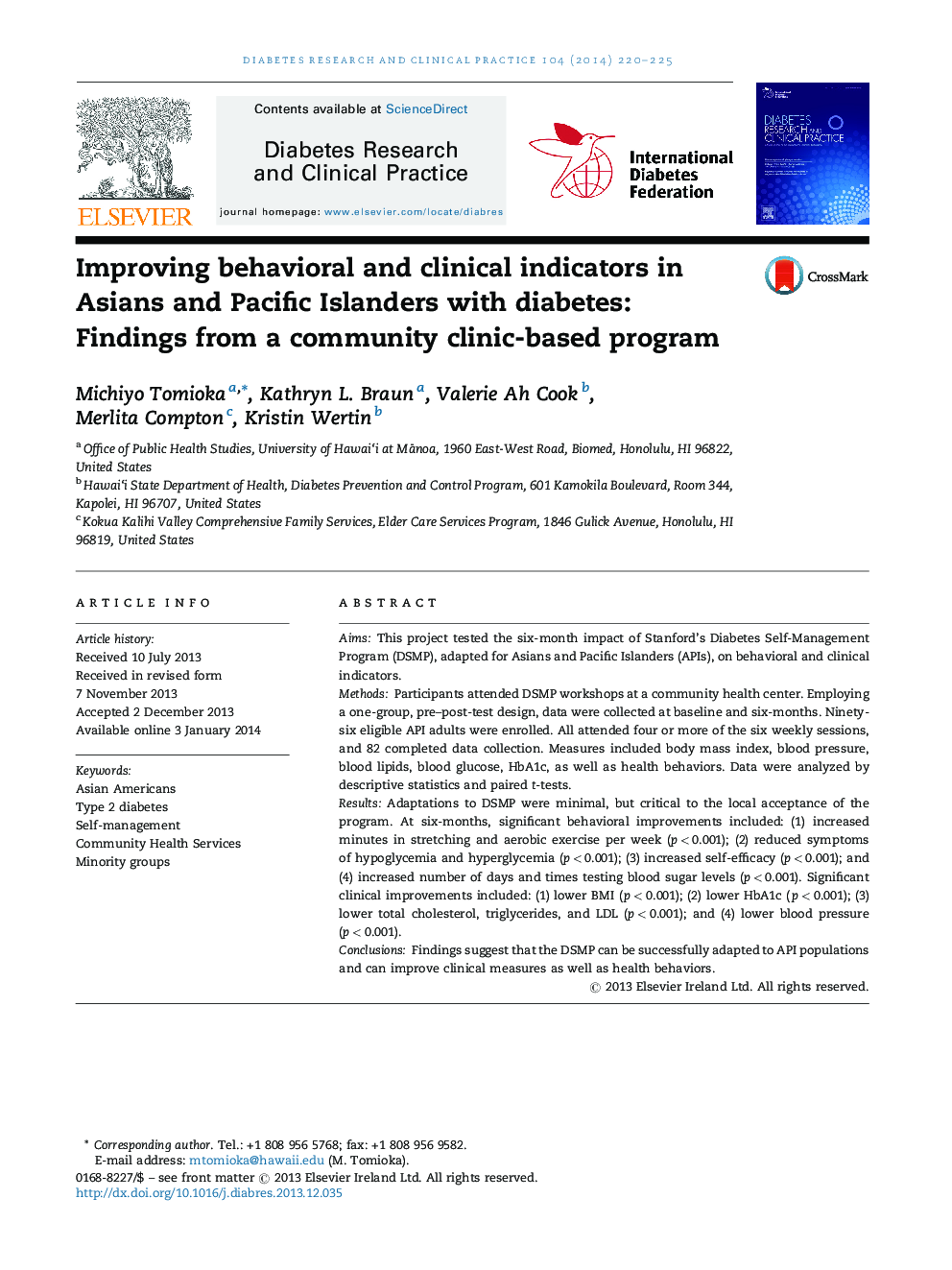| Article ID | Journal | Published Year | Pages | File Type |
|---|---|---|---|---|
| 5899630 | Diabetes Research and Clinical Practice | 2014 | 6 Pages |
AimsThis project tested the six-month impact of Stanford's Diabetes Self-Management Program (DSMP), adapted for Asians and Pacific Islanders (APIs), on behavioral and clinical indicators.MethodsParticipants attended DSMP workshops at a community health center. Employing a one-group, pre-post-test design, data were collected at baseline and six-months. Ninety-six eligible API adults were enrolled. All attended four or more of the six weekly sessions, and 82 completed data collection. Measures included body mass index, blood pressure, blood lipids, blood glucose, HbA1c, as well as health behaviors. Data were analyzed by descriptive statistics and paired t-tests.ResultsAdaptations to DSMP were minimal, but critical to the local acceptance of the program. At six-months, significant behavioral improvements included: (1) increased minutes in stretching and aerobic exercise per week (p < 0.001); (2) reduced symptoms of hypoglycemia and hyperglycemia (p < 0.001); (3) increased self-efficacy (p < 0.001); and (4) increased number of days and times testing blood sugar levels (p < 0.001). Significant clinical improvements included: (1) lower BMI (p < 0.001); (2) lower HbA1c (p < 0.001); (3) lower total cholesterol, triglycerides, and LDL (p < 0.001); and (4) lower blood pressure (p < 0.001).ConclusionsFindings suggest that the DSMP can be successfully adapted to API populations and can improve clinical measures as well as health behaviors.
